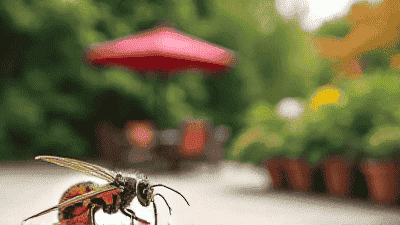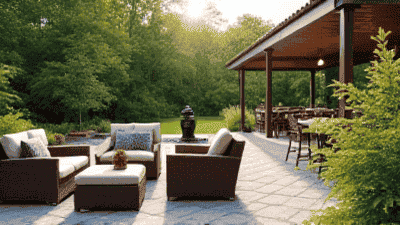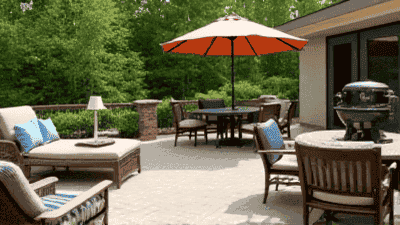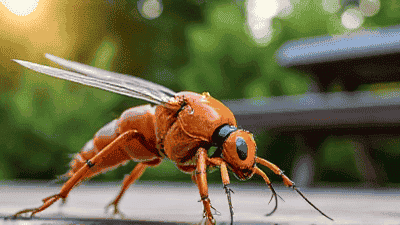
Summer is a time for relaxation, outdoor activities, and gatherings with family and friends. However, while enjoying the warmth and beauty of the season, one common issue can put a damper on your festivities: pests. Insects like mosquitoes, ants, flies, and wasps can invade your patio and disrupt the fun, making it essential to implement effective pest control strategies.
Before diving into pest control strategies, it is essential to recognize the types of pests that typically invade patios during summer. Identifying these pests can help you tailor your prevention methods effectively.
Mosquitoes are notorious for their ability to ruin outdoor gatherings. They are drawn to carbon dioxide, body heat, and sweat, making people their primary target. Additionally, standing water, which serves as a breeding ground, attracts mosquitoes to your outdoor space.
Ants are social insects that often form colonies in search of food. Once they find a food source on your patio, they can become persistent in their attempts to gather and take it back to their colony.
Flies, especially houseflies and fruit flies, can be particularly bothersome in outdoor settings. Houseflies are attracted to decaying food, waste, and grime, while fruit flies are drawn to ripening or rotting fruits and vegetables.
Wasps and hornets are more aggressive than other insects and can pose a threat to your gatherings. They build nests nearby in eaves, trees, and shrubs, and they are attracted to food and sweet drinks, making outdoor parties an enticing target.
While ticks are more commonly associated with wooded areas, they can occasionally find their way to patios and yards, especially if there is dense vegetation nearby. Ticks can transmit diseases, making their presence a concern during outdoor activities.
Understanding these common pests is the first step in formulating a plan to control them effectively.

Preventing pests from invading your patio is the most effective way to ensure a pleasant gathering. Here are several strategies to minimize the chances of pests taking over your outdoor space.
As mentioned earlier, standing water is a breeding ground for mosquitoes. Inspect your patio and surrounding areas for sources of standing water, such as puddles, flower pots, bird baths, or clogged gutters, and address them promptly. Ensure that water features like fountains have moving water to deter mosquitoes.
Keeping your patio clean is crucial in preventing pest infestations. Regularly sweep away crumbs, spills, and food remnants, as they attract pests. After gatherings, make sure to thoroughly clean the area where food was served and dispose of trash promptly.
Natural repellents can help deter pests without relying on harsh chemicals. Consider using essential oils such as citronella, peppermint, eucalyptus, and lavender to create sprays or candles. Simply mix a few drops of essential oil with water in a spray bottle and apply it to your patio and surrounding areas.
Physical barriers can act as a deterrent for many pests. Consider using fine mesh screens on open areas or enclosures for your patio to keep insects away while allowing airflow. Install weather stripping on doors and windows to prevent pests from sneaking in when you enter or exit.
Certain outdoor lights can attract insects, particularly mosquitoes. Opt for yellow or sodium vapor lights, which are less appealing to insects, or use LED lights with a lower output. Additionally, placing outdoor lights further away from your gathering area can help minimize insect activity.
Incorporating pest-resistant plants into your patio landscape can help deter unwanted visitors. Consider planting herbs such as mint, basil, and rosemary, which are known to repel mosquitoes and flies. Additionally, marigolds can act as a natural insect repellent.
Pest traps are an effective way to catch and eliminate unwanted insects. Install sticky traps or fly traps around your patio area to capture flies and other flying pests. For mosquitoes, consider using mosquito traps that lure them in and trap them without harmful chemicals.
Despite your best efforts at prevention, you may still encounter pest issues during summer gatherings. Here are some effective management strategies to tackle existing infestations:
When gathering outdoors, consider applying insect repellent to exposed skin. Look for products containing DEET, picaridin, or oil of lemon eucalyptus, which are effective against mosquitoes and other biting insects. For food areas, consider using plant-based insect repellent sprays to deter pests without harming the environment.
If wasps or hornets are a concern, setting up wasp traps can help eliminate them safely. You can purchase ready-made traps or make your own using a two-liter bottle filled with a mixture of sugar water, vinegar, and dish soap. The sweet scent will attract wasps while the dish soap prevents them from escaping.
Essential oils can also be used as pest deterrents during gatherings. Spraying a mixture of essential oils, such as citronella or eucalyptus, around food and seating areas can help deter pests without resorting to pesticides.
When hosting gatherings, be mindful of food placement. Use food covers or nets to protect dishes from insects while you enjoy your meal. Additionally, refrigerate leftovers promptly to avoid attracting ants and flies.
Always dispose of food waste in sealed containers immediately after your gathering. Leaving garbage bags or food scraps sitting out can attract flies, ants, and other pests, so it is crucial to manage waste effectively.
If pest problems persist and become overwhelming, consider contacting pest control professionals. They can provide targeted interventions tailored to your specific pest issues while ensuring the safety of your outdoor space.

A focus on natural pest control methods not only protects your garden but also supports the environment. Here are some additional eco-friendly techniques to consider.
Encouraging beneficial insects, such as ladybugs and lacewings, can help control pest populations naturally. Planting a variety of flowers and herbs can provide food and habitat for these helpful allies.
Companion planting is a gardening strategy that involves planting certain species together to enhance mutual growth and deter pests. For example, marigolds can repel nematodes and attract beneficial insects when planted alongside vegetables.
Birds can act as natural pest controllers in your yard. Install bird feeders and birdhouses to attract them to your patio area. Many birds feed on insects and will help keep pests at bay.
Neem oil is a natural insecticide derived from the seeds of the neem tree. It is effective against a wide variety of pests, including aphids and spider mites, without harming beneficial insects when used correctly.
A simple soap and water solution can be effective in controlling soft-bodied insects, such as aphids and spider mites. Mix a few drops of mild dish soap in water and spray it directly onto the pests. The soap suffocates them and can be used safely on most plants.
Long-term success in keeping your patio pest-free relies on creating an environment that discourages pests from taking up residence. Here are strategies to enhance your patio and make it less appealing to unwanted guests.
Regularly trim back overgrown vegetation and remove debris from your patio area. Dense shrubbery and tall grass serve as excellent hiding spots for pests. Keeping the landscaping tidy will reduce potential nesting sites for insects.
Adding gravel or stone as a base to your patio area can deter pests, as it makes it challenging for them to find shelter. Additionally, it provides a clean, dry surface that is easier to maintain.
Inspect your patio furniture, decking, and structures for cracks and gaps that could allow pests entry. Seal any openings to prevent insects from finding their way indoors.
If possible, periodically move seating arrangements and furniture to change the flow of traffic in the outdoor space. Altering the setup can disrupt any potential nests or colonies that may have formed.
When selecting cushions and fabrics for your outdoor furniture, consider utilizing pest-repelling materials. Fabrics infused with insect-repellent compounds can help keep pests away while providing comfort.
Avoid piling yard waste on your patio, as decomposing leaves and grass can attract pests. Instead, use compost bins or designated disposal areas away from your outdoor entertaining space.

As summer approaches, consider developing a pest control plan ahead of your gatherings. This proactive approach will ensure that you are prepared to tackle potential pest issues before they arise. Here’s how to create a summer gathering plan:
Establish a routine for maintaining cleanliness around your patio. Regularly check for signs of pests, such as nests, droppings, or damage to plants. Promptly address any issues to prevent infestations.
When hosting gatherings, designate a specific area for food and drinks, such as tables covered with clean tablecloths or blankets. This helps keep food centralized and minimizes spillage around the patio.
Consider using natural decorations, such as potted herbs and flowers, which not only beautify your patio but also provide pest-repelling properties. For example, rosemary and lavender are aesthetically pleasing and can deter pests.
Educate your guests about the pest control measures you have implemented. Encourage them to keep food covered and discard waste promptly, so everyone is aware of their role in maintaining a pest-free environment.
Equip your patio with fans or misters to keep guests cool and comfortable. Mosquitoes are less likely to linger in breezy areas, so maintaining airflow can help reduce their presence.
Incorporate activities during your gathering that engage guests and keep them occupied, minimizing the time spent still outdoors. Lawn games, crafts, or DIY stations encourage movement and distraction from pests.
Keeping your patio pest-free during summer gatherings requires a combination of prevention, management, and ongoing maintenance. By understanding the pests you may encounter and implementing effective strategies, you can create a comfortable outdoor environment for you and your guests.
From eliminating standing water to using natural repellents, every effort you make contributes to a more enjoyable experience. By fostering a healthy ecosystem and employing eco-friendly pest control methods, you can ensure that your summer gatherings remain delightful and pest-free.
With the proper planning and proactive measures, you can confidently host your outdoor gatherings all summer long, knowing that your patio is protected from unwanted pests. Enjoy the beautiful summer days, the laughter of friends and family, and the joy of outdoor living.